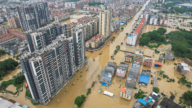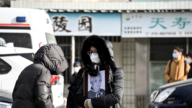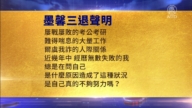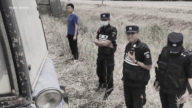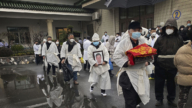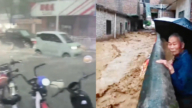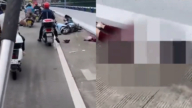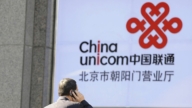【新唐人2013年10月17日讯】中国各地将设立“新闻道德自律委员会”,目前已经在5省市试点。对此,中国资深媒体人表示,中国大陆的新闻单位,被称为“党的阵地”,而记者是“党的喉舌”,党想说什么就帮着说什么,虽然有一些记者,愿意履行报导事实真相的责任,但下场往往都非常悲惨,现在中共又要求“新闻自律”,看来,“中国不需要记者,有事发个通稿就好了。”
中共武汉市委机关报《长江日报》报导,官方的“全国新闻工作者协会(大陆记协)”将设立“新闻道德自律委员会”,目前在上海、浙江、河北、山东和湖北五省市进行试点。
北京原《百姓》杂志主编、资深媒体人黄良天:“记者的职业道德、职业操守全世界都有共同的准则。规范的目地就是全国报纸都一个样,那么要发那么多报纸干什么﹖每一个人都讲的同一个语言,那要那么多记者干什么﹖发个通稿不就得了吗?”
在中国新浪微博上,有超过90%的网民,讥讽当局成立所谓的记者自律委员会。
黄良天:“记者利用一些政策的空隙,干点记者应该干的事情,但是结局往往都是悲剧的。拿我自己而言,现在已经非常边缘化,你根本就没有办法去主持一个新闻单位,或者一个电视节目。甚至你发表的一些讲话的渠道,(中共)都给你堵死了。”
据了解,北京《百姓》杂志,是农业部旗下月刊,在原杂志主编黄良天的领导下,不断揭露征地、拆迁等当局视为敏感的问题,因此经常遭到当局的骚扰和整肃。2006年年底,黄良天突然被当局调离杂志主编职务,虽然上级单位声称黄良天的调职是岗位轮换,但内部人士透露,当局想藉由撤换主编而改变杂志风格。同时,黄良天被安排到《农产品市场周刊》,不再涉及社会新闻报导。
美国国务院国际信息局(U.S. Department of State’s Bureau of International Information Programs)出版物——《独立新闻工作手册》(Handbook of Independent Journalism)中提到,新闻工作的第一职责是符合事实﹔独立于报导对像﹔成为权力的独立监督者﹔必须能够根据他们的个人良知行事等。这些信条被民主社会里的新闻工作者所遵行。
黄良天:“大陆的记者是有本质差别的,中国对记者的定义是党的新闻工作者,对于记者来说,是党的喉舌,党说什么,你帮它说什么。”
监督公权力,曝光丑恶,是记者的天职,但是在中国大陆,这样的记者,却遭到打压。
2010年7月,《经济观察报》记者仇子明,因报导上市公司“凯恩”的交易内幕,遭到公司所在地——浙江省丽水市遂昌县公安局网上通缉。
2012年,《西安晚报》记者石俊荣,因报导“天价烟”被停职。
今年3月,公民记者李建军,因发帖举报山西省水利部门腐败,李建军不但被抄家,还被传唤问话近24个小时。
广州《新快报》记者刘虎,今年7月29号通过个人微博,实名举报中共工商总局现任副局长马正其严重渎职。10月10号,刘虎被检方以“诽谤罪”批准逮捕。
而屡遭迫害的原《经济观察报》调查记者王克勤,在接受《新唐人》采访时表示不愿多说。
中国原《经济观察报》调查记者王克勤:“记者的天职是说出真相和事实,我不方便谈了,我现在也没做记者。”
王克勤1989年开始在《甘肃经济日报》当记者。2011年9月,加入《经济观察报》担任总编助理。在他担任记者期间,先后推出震惊中国海内外的《北京计程车业垄断黑幕》、《山西疫苗乱象调查》等一系列调查报导,王克勤因此被业界称为“中国揭黑记者第一人”。
今年3月,媒体纷纷报导王克勤从《经济观察报》“被下课”。他离开报社的当天,在新浪微网志发帖说﹕当下中国,为权贵代言者众,替苍生直言者稀。
采访编辑/常春 后制/李勇
Journalism Self-discipline?
Journalist: China does not need reporters.
China recently set up 5 pilot stations for
Journalism Ethics and Self-Discipline Committee.
A senior Chinese journalist comments that the news agencies
are the CCP front in China.
Those who reported true news are often faced with tragedy.
As for the “self-discipline", it is stated: China does not
need journalists, but official statement.
According to Changjiang Daily, All-China Journalists’
Association are in the process of organizing the
Journalism Ethics and Self-Discipline Committee.
So far, 5 pilot stations have been set up in Shanghai,
Zhejiang, Hebei, Shandong and Hubei.
Huang Liangtian, former chief editor of Beijing Baixing magazine:
There is a professional ethics standard for reporters
around the world.
The regime disciplines every reporter to speak the same.
Why do we need reporters?
A statement will take care of it.
More than 90% of Sina microblogging users criticized
the so-called self-discipline committee.
Huang Liangtian: Journalists who reported along
the policy gaps often met tragedy.
Take myself as an example,
I have been marginalized.
I can’t host news or any program.
The Communist regime has blocked every possible channel.
Baixing magazine is a monthly magazine under the
Ministry of Agriculture.
When Huang Liangtian was leading the magazine,
the authorities carried out harassment and purge against
the magazine due to reports on sensitive issues such as
land acquisition and forced demolition.
At the end of 2006, Huang Liangtian was suddenly removed
from the magazine’s editor position.
The authorities claimed it was a rotation.
An insider revealed that he was removed
to change the magazine style.
Huang Liangtian, who arranged the Agricultural Market Weekly,
was no longer involved in social news.
According to the Handbook of Independent Journalism,
published by the US Department of State’s Bureau of
International Information Programs:
Journalism’s first obligation is to tell the truth.
Its practitioners must maintain an independence
from those they cover.
Journalism must serve as an independent monitor of power.
Its practitioners must be allowed to exercise
their personal conscience.
These are clear principles that journalists
in a democratic society agree on.
Huang Liangtian: The mainland reporters are
different from others.
In China, journalists are defined as workers of
the Communist party.
They are the party’s mouthpiece, and may only
speak what’s allowed.
A reporter’s duty is to supervise the authority
and expose the ugly.
In China, such reporters will only become suppressed.
Chou Ziming, a journalist from the Economic Observer,
became wanted online in July 2010, by the Zhejiang police
for reporting the insider trading of a listed company, Kane,
located in Zhejiang.
2012, Xi’an Evening News reporter Shi Junrong was suspended
due to his report on “expensive cigarettes."
This March, citizen reporter Li Jianjun experienced a
house search and police questioning for nearly 24 hours
due to his online post, which exposed the corrupt
water sector in the Shanxi Province.
Guangzhou Xinquai News reporter Liu Hu exposed
the serious dereliction of duty of current deputy of
State Administration for Industry and Commerce, Ma Zhengqi,
on 29th July through personal microblogging.
On 10th October, Liu Hu was arrested on the charge of libel.
Wang Keqin, former Economic Observer investigative reporter,
has been through multiple persecutions.
He was reluctant to say much during his interview with NTD.
Wang Keqin, former Economic Observer investigative reporter:
It is the reporter’s duty to tell the truth and report on the facts.
It is not convenient for me to say anything now.
I am no longer a reporter.
Wang Keqin began as a reporter for
Gansu Economic Daily in 1989.
Since September 2011, he joined the Economic Observer
as an editorial assistant.
His series of investigative reports such as
the “shady Beijing taxi industry monopoly" and
“Investigation of the chaotic vaccines in Shanxi" have won
him the title, “the first whistle-blowing reporter in China".
This March, Wang Keqin was reportedly removed
from the Economic Observer.
He posted a Sina blog on the day he left his work:
In contemporary China, there are many who endorse the
powerful, but few speak out for the public.


